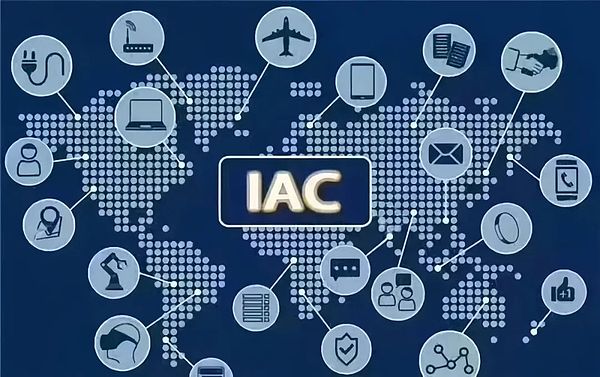Cryptocurrencies have been in high demand in recent years. However, as different use cases emerge and are rapidly adopted, the idea that digital assets are just some form of money is slowly being forgotten.
This May, The Fintech Times will showcase some of these new approaches and explore how the digital asset ecosystem is evolving. To conclude Digital Asset Month, we’ll be looking back at the technology that’s driving it all: blockchain.
In 1991, the first paper on using crypto security blocks on-chain was published, and less than two decades later, the idea was validated and Bitcoin was born.
Since then, the technology has come a long way, with countless companies creating their own blockchains to facilitate payments, track ownership, and more. In this article, we’ll review the latest blockchain innovations, see how the technology is being used beyond crypto assets, and where it’s headed.
Reduce Risk
Yuval Rooz, co-founder and CEO of Digital Asset, a blockchain and tokenization software and services provider, looks at how capital markets are beginning to take notice of blockchain’s impact.
Rooz said: "Blockchain technology is changing the way the global financial system operates. We have seen industry leaders such as Goldman Sachs DAP, JPMorgan Onyx, Broadridge's DLR, HSBC Orion and other industry leaders take their projects from PoC to production, and the momentum continues to build."
"The scale of this change is complex, and the next challenge that institutions are grappling with is how to maximize interoperability across the wider market."

"Significant progress has been made in this regard over the past year, with the creation of the Canton Network being a great example. The industry's understanding of how to achieve atomic settlement within the current regulatory framework continues to expand, and the evidence of its potential to reduce settlement and counterparty risk will continue to promote the development of new use cases and business models."
“The past year has seen substantial development of blockchain technology, from its initial financial applications to more complex systems that impact a wide range of industries,” he said.
“Notably, the development of Teranode, a commercial-grade node software, is a major step forward. It significantly increases transaction processing capabilities and pushes the boundaries of blockchain scalability, enabling it to have a broader socioeconomic impact on a global scale.”
“Innovations in decentralized identity and information security are also at the forefront. These advances aim to transform traditional systems by empowering users to have greater autonomy over their personal data and by adding necessary security measures in an increasingly digital world.”
“These innovations are critical because they not only provide a more robust security framework, but also ensure greater user privacy and trust in digital interactions.”
“Applications beyond traditional finance” Later, Daugherty turned his attention to the application of blockchain beyond Crypto assets. He added: “Blockchain technology is being adopted to address challenges that traditional systems struggle to address. This includes reducing reliance on trusted third parties and creating more efficient methods of data management and monetization.”
“For example, CERTIHASH Sentinel Node, developed in partnership with IBM, revolutionizes the way enterprises manage cybersecurity. By drastically reducing threat detection time from an average of 204 days to almost instantaneous, this application addresses the critical need for rapid response amidst the increasing threat landscape. This capability is particularly valuable given that a breach more than 30 days old can cost a company up to $9 million.”
“In the agricultural sector, companies such as Smart Grow Agritech LLC are leveraging blockchain to provide more precise production tracking and data management to empower farmers. This integration will not only increase agricultural productivity, but also support sustainable practices by optimizing resource utilization and ensuring compliance with evolving agricultural regulations.”

"In addition, nChain's digital signature application 'nSign' is transforming document management across industries by improving the security and transparency of the document signing process. The application ensures that documents are tamper-proof and simplifies the verification process, thereby promoting trust and streamlining workflows in industries where document integrity is critical."
Curbing the Growth of APP Fraud
Andrew Carrier, executive committee member of blockchain financial company Quant, analyzed how blockchain technology can be used to combat one of the biggest threats facing the public.
He said: "While some 'unregulated' Crypto experiments have clearly failed, use cases that prioritize security, regulation and efficiency are playing a real role in improving everyday applications."
"Take the problem of APP fraud, which will cost victims up to £2.3 billion in 2023. Given the extent to which fraudsters manipulate victims, it is difficult for banks to prevent this problem."
"Blockchain smart lock systems greatly reduce the risk of fraudulent activities by setting specific transaction conditions to ensure that funds are only released when predetermined criteria are met, curbing unauthorized transactions, reducing bank reimbursement expenses, and freeing victims from the shame and stress of being deceived."
"These locks facilitate the participation of all parties, meaning that users can decide when to unlock funds for designated recipients. For example, at checkout, all parties agree to the terms of the transaction; the funds are then locked in the customer's account pending confirmation of the delivery of the goods; after verification, the funds are immediately transferred to the seller."
"This is just one example of how blockchain is transforming industries through practical, everyday applications."
What's next for blockchain?
Angus Fletcher, CEO of payments technology company Fnality, looks ahead to blockchain's role in connecting the old and new financial worlds.
She said: "Blockchain has the potential to bridge the gap between DeFi and traditional finance, and there are many innovations and applications being explored. In using blockchain for wholesale payments, Fnality's vision is to build an interconnected network of digital payment systems that can manage liquidity between different currencies."

"Fnality has been launched in the UK and plans to expand to the United States, Europe, and eventually Asia, which will enable instant trading and settlement around the clock in different venues. This is an important step in eliminating settlement risks, time zone barriers and huge costs for intermediaries. This will provide core payment convenience for the new tokenized market by achieving near-instant settlement."
Original text by Francis Bignell, Chinese version compiled by the Chain Market team.
 JinseFinance
JinseFinance






